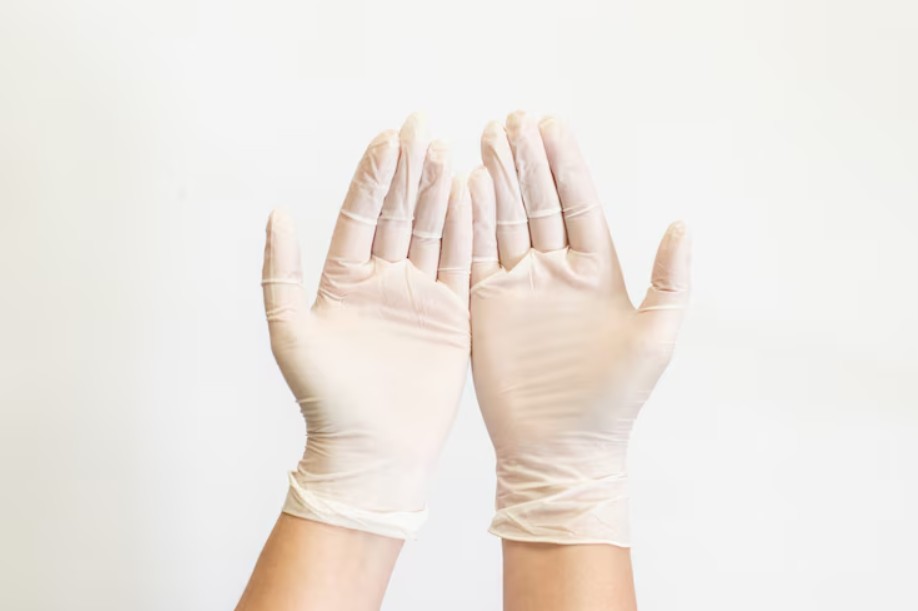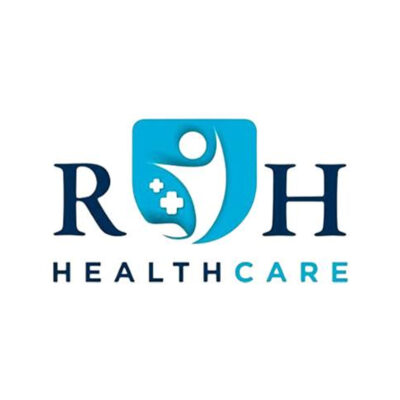Why are surgical gloves so important for surgeons?
In the sterile and precise environment of an operating room, every detail matters. From lighting and instruments to the surgeon’s focus and skill—everything contributes to patient safety. But among all these critical components, one item silently plays a life-saving role: surgical gloves. These gloves are more than just a barrier; they represent a commitment to hygiene, infection prevention, and professional responsibility. The importance of surgical gloves begins long before a scalpel is picked up. It starts with selecting the right quality, which is why choosing the right supplier is essential. A trusted surgical gloves wholesaler in Gandhinagar ensures that hospitals, clinics, and medical professionals receive products that meet rigorous safety standards without compromise.
Surgical gloves protect both the surgeon and the patient. They reduce the risk of cross-contamination, ensure a better grip on tools, and provide comfort during long procedures. These gloves must be durable, sterile, and comfortable, allowing precision without distraction. As the demand for reliable surgical gloves continues to rise across India, sourcing from a reputed surgical gloves wholesaler in Gujarat becomes crucial to maintaining quality patient care and operational efficiency. This blog explores why surgical gloves are indispensable in modern surgery and what professionals should know about them.

The Origin and Evolution of Surgical Gloves
The story of surgical gloves begins in the late 19th century when surgeries were performed barehanded, leading to high rates of infection. The introduction of gloves marked a significant shift in surgical hygiene. Initially made of thick rubber, early gloves were uncomfortable and limited dexterity. However, their effectiveness in preventing infections soon made them indispensable.
Over time, manufacturers developed more refined materials like latex, nitrile, and neoprene, offering better flexibility, grip, and protection. Today, surgical gloves are not only standard practice but are also engineered to enhance performance while minimizing the risk of allergic reactions. Their evolution mirrors the medical field’s growing understanding of hygiene, sterile technique, and patient safety.
Infection Control and Cross-Contamination Prevention
In every surgical setting, the risk of infection is one of the greatest concerns. A single lapse in barrier protection can lead to serious postoperative complications. Surgical gloves act as a shield between the surgeon’s hands and the patient’s body, preventing microorganisms from being transferred in either direction.
Gloves are designed to be single-use for a reason. They are sterilized before packaging and disposed of immediately after the procedure. This minimizes the chance of bacterial transmission from one patient to another. Hospitals and clinics are required to follow strict hand hygiene protocols, where gloves are an integral component. When high-quality gloves are used, the surgical team can operate with greater confidence, knowing they are minimizing risk.
Material Matters: Latex, Nitrile, and Neoprene
Different procedures and patient needs require different glove materials. Latex gloves have long been the gold standard because of their comfort and flexibility. However, latex allergies in patients and staff have led to increased use of alternatives like nitrile and neoprene.
Nitrile gloves offer superior resistance to punctures and chemicals, making them ideal for high-risk surgeries. Neoprene gloves provide both durability and a latex-like feel, which many surgeons prefer for sensitive procedures.
The right material can significantly impact the success of a surgery. Surgeons rely on gloves that do not tear easily, fit snugly, and allow for tactile precision. Suppliers like RH Healthcare provide options that match these expectations, supporting medical professionals with trusted quality.

Comfort and Dexterity in Extended Surgeries
Many surgical procedures extend over several hours. In such cases, the comfort and usability of gloves become as important as their protective qualities. Ill-fitting or low-quality gloves can cause hand fatigue, reduced sensation, and even minor injuries like blisters or sweating that distract surgeons and affect performance.
Well-designed surgical gloves offer ergonomic comfort, breathable materials, and textured surfaces for improved grip. These features help maintain focus during long operations and reduce the need for glove changes, thus enhancing procedural efficiency. A surgeon must feel that the gloves are an extension of their hands—not an obstacle. That only comes from reliable, quality-tested products supplied by experienced wholesalers.
Legal and Ethical Responsibilities
The use of proper surgical gloves is not just a matter of personal or institutional choice—it is a legal and ethical requirement. Regulatory authorities across the world mandate the use of certified gloves in every surgical setup. Medical institutions are held accountable for any oversight, especially if it results in patient harm.
Using substandard or expired gloves can lead to lawsuits, regulatory penalties, and irreparable damage to the reputation of a healthcare provider. That is why sourcing gloves from a surgical gloves wholesaler in Gujarat with a reputation for consistency and certification compliance is essential. Quality assurance is not optional—it is a necessity.
The Role of Wholesalers in Healthcare Efficiency
A reliable wholesaler does more than just provide products. They act as a strategic partner in the healthcare supply chain. Wholesalers help hospitals maintain stock levels, prevent shortages, and ensure timely delivery. In surgical practice, even a short delay in glove supply can stall or cancel scheduled procedures.
RH Healthcare, as a leading name in the field, understands these challenges and builds its distribution model to support the fast-paced demands of the medical sector. From maintaining a wide inventory to offering material and size options, they simplify procurement while ensuring all gloves meet sterilization and packaging standards.

Surgical Glove Standards and Certifications
Not all gloves are equal. Medical-grade surgical gloves must pass strict standards defined by regulatory bodies such as the FDA, CE, or BIS (Bureau of Indian Standards). These standards check for strength, flexibility, sterility, and resistance to tearing or punctures.
Certified gloves come with batch testing records, expiry dates, and storage guidelines. They also include quality control documents that assure users of consistent performance. RH Healthcare ensures that every pair delivered meets these expectations, reinforcing trust across healthcare networks.
Surgeons depend on these certifications as much as they depend on their own training and tools. There is no room for compromise when a patient’s life is at stake.
Environmental Concerns and Eco-Conscious Practices
As the demand for disposable medical products rises, so does the environmental impact. Surgical gloves contribute to biomedical waste, which requires proper disposal through incineration or chemical treatment. However, the healthcare industry is slowly moving toward sustainable practices.
Some manufacturers now produce biodegradable gloves or use recyclable packaging. Wholesalers with a progressive approach support this shift by offering more eco-friendly options. Hospitals and clinics are encouraged to work with partners who prioritize both hygiene and environmental responsibility. RH Healthcare is aligned with this vision, offering solutions that meet both clinical and ethical standards.
Real-World Impact: How Gloves Protect Lives Every Day
Every successful surgery silently honors the importance of surgical gloves. From minor procedures to complex operations, gloves are part of every milestone in modern medicine. Consider an emergency appendectomy or a heart bypass—each step, from incision to suture, relies on hands protected by sterilized gloves.
Surgeons perform life-saving tasks with precision, and gloves offer a safeguard against unpredictability. Even beyond surgery, gloves are used in wound care, diagnostics, labor and delivery, and oncology treatments. Their impact spans every discipline, proving their relevance in the broader context of patient care.
The Cost of Compromise
Some healthcare providers may try to cut corners by sourcing cheaper gloves from unverified suppliers. But the consequences of this decision often outweigh the savings. Low-grade gloves may tear mid-procedure, lack adequate protection, or cause allergic reactions. This creates risk not only for the patient but also for the surgical team.
Reputable wholesalers offer both affordability and assurance. RH Healthcare, for instance, balances competitive pricing with strict quality protocols, allowing buyers to save costs without compromising safety. When human lives are involved, quality is always the more cost-effective choice.
Adaptation in the Post-Pandemic Era
The pandemic brought global attention to the importance of PPE, including surgical gloves. Shortages revealed gaps in supply chains, and many institutions began to prioritize relationships with dependable wholesalers. Since then, demand for high-quality gloves has surged, and expectations around performance have intensified.
RH Healthcare responded by increasing inventory, diversifying glove types, and reinforcing its sourcing methods. Today, as elective surgeries resume and hospitals return to full capacity, a trusted surgical gloves wholesaler in Gandhinagar can help medical centers avoid future supply disruptions and continue to provide seamless patient care.
Educational Efforts and Training
Glove usage is also part of medical training. Surgeons, nurses, and support staff undergo hygiene protocols where proper glove usage is taught early. This includes how to wear gloves without contamination, when to change them, and how to dispose of them safely.
The best hospitals work with wholesalers who support these educational efforts by providing documentation, training videos, and, in some cases, sample products. RH Healthcare collaborates with institutions to promote not just the use of gloves but the understanding of why they matter.
Supply Chain Transparency and Trust
In the healthcare world, trust is built over time. Wholesalers who consistently deliver on promises, maintain ethical practices, and communicate transparently become long-term partners. Hospitals prefer working with suppliers who can trace the origin of their products, provide quality assurance documents, and respond quickly to queries.
Transparency is not a luxury; it is a necessity. A glove is only as trustworthy as the process through which it was produced, tested, packaged, and delivered. RH Healthcare builds this trust daily by keeping its operations visible and client-centered.
Summary
Surgical gloves are not just accessories; they are essential in every surgical procedure. They protect lives, preserve hygiene, and help maintain the professionalism of the medical field. Every aspect of their production, supply, and usage reflects the seriousness of their role in healthcare.
With increasing demand, rising medical standards, and a growing focus on sustainability, choosing the right supplier has never been more important. Hospitals and clinics that rely on RH Healthcare gain not just a product but a promise of quality, safety, and trust.
Whether you are a large hospital or a small clinic, securing a reliable supply from a trusted surgical gloves wholesaler in Gujarat can make a world of difference in your operations.
To ensure your patients and medical team are always protected, choose surgical gloves from RH Healthcare—the name trusted by professionals across India.
